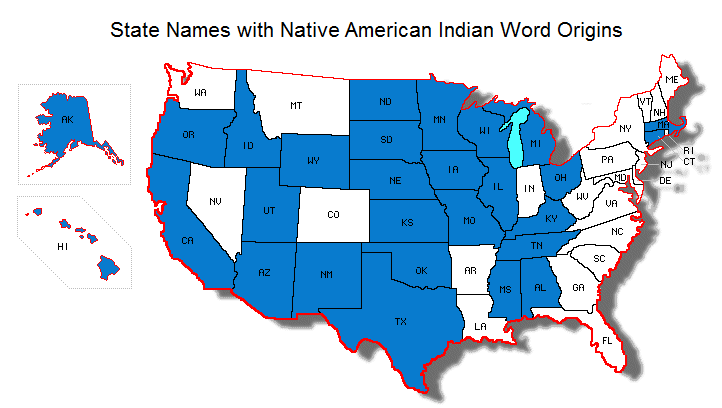Happy Birthday! The United States is celebrating its 236th birthday today.
3) Look for anything interesting: trends, outliers, common threads
I saw an article from Mental Floss Magazine by Matt Soniak called How All 50 States Got Their Names. It was well-timed for July 4th, but a bit long at 5,000 words. After reading through the alphabetical list A, B, C , I started getting frustrated by all the words. Call me lazy, but I wanted to see the big picture. Understand the narrative. Dig out the insights. So, I did what all consultants do when confronted with data. . .
1) Think about the logical groupings
- I noticed that the state names really boiled down to either a) Native American Indian words or b) European (read: Spanish, French, English) words
2) Put the data into excel for analysis
- I started the un-fun task of reading the words, and boiling it down into its parts
- Here are the first 10 states (A-G) with the name origin and meaning

3) Look for anything interesting: trends, outliers, common threads
- Consultants love maps. I am no exception. Tableau is my favorite for visually mapping data, but I found a free alternative at www.diymaps.net
- 60% of states have names with Native American Indian word origins. All 28 states shown below in blue trace their names back this way
 4) Make it graphical if it helps to convey the point
4) Make it graphical if it helps to convey the point
- I ran the map again for the states which names that have multiple name origins
- Surprisingly, eleven states (shown in green below) have unknown name origins or multiple conflicting stories. For example, New Mexico obviously comes from “Mexico”, but even that name has an unclear origin as described here.

Do you know the meaning of your state’s name? I didn’t
- Here are the other 40 states, letter H – W. This is good Jeopardy stuff
- If there are “quote”, it is a Proper noun. For example, Louisiana was named after King Louis. Also, Virginia was named after Queen Elizabeth I (the “Virgin Queen”)
- Some names have both Native American Indian & European origins; for example, Illinois and Michigan were Native American Indian words that were anglicized


Good display of analytical capabilities 🙂 I’m citing your article and your link in one of my blog posts today at http://www.thesmartconsultant.com
Thanks for the link. Have a great week.